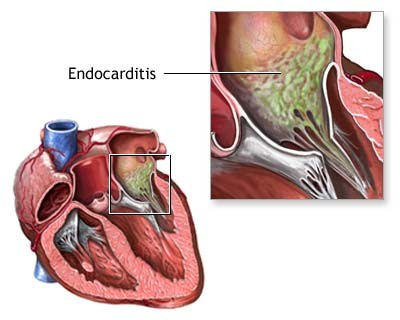True or False: Heart Valve Infections are Rising in the United States
By Adam Pick on April 19, 2013
Earlier today, I was reading the latest online edition of US News and World Report when I came across an interesting fact about infections that can lead to valvular disorders. That said, I thought you might like a daily dose of heart valve trivia.
True or False: There is a steady rise of heart valve infections, also known as bacterial endocarditis, in the United States? (Scroll below for the answer.)

According to researchers, life-threatening infections of the heart valve are twice as common in the United States as previously thought and have increased steadily during the past 15 years. If you were unaware, endocarditis can be fatal, result in stroke or heart attack if not treated.
Surprised? So, was I…
Interestingly, the report went on to note that many of the infections were acquired in health care facilities and may have been preventable. I guess this is another good reason to ask your surgeon or clinic coordinator about infection rates before you schedule surgery, right?
In discussing endocarditis, Dr. John Brusch, the co-author of the study, noted that while infections are still relatively uncommon, the current incidence is 2 to 3 times that of tuberculosis or syphilis.
Keep on tickin!
Adam
|
Jim Marcum says on April 19th, 2013 at 2:24 pm |
|
Asking a hospital about its infection rates is useless. The past three hospitals I’ve been in all give you a quick evasive answer as far as their hospitals control of staph germs and infection rates. I try to watch the care providers myself and have my family do it. Believe me they get irritated when you have to remind them to put on sterile gloves when they walk into your room before they touch you. You would not believe how many times nurses and other providers walk into your room, from the hallway and other rooms and patients and touch you with their bare and possibly germ packing hands. I know it is not something any of us like to do but we have to take part in and speak up about our health care. I have had Nurses get mad at me because I asked what medication they were giving me. I also in this same hospital stay sent nurse to check that was about to give me a treatment that was scheduled for another patient in another room. Smile as much as you can. Be helpful but still ask questions and watch who’s hands are touching you. |
 |
|
Andrew says on April 21st, 2013 at 7:52 am |
|
Am I surprised? No. I’m not. I had endocarditis. My GP had had a heart attack, so it took me two weeks to convince the locum that I had endocarditis (it came down to: “If you insist, I will refer you” to which I said “I insist”), on my then faulty mitral valve. As a result of endocarditis, I now have a mechanical mitral valve. I spent 3 months in hospital, but no one detected the underlying cause: a chronic abscess under one of my teeth. By sheer chance, I changed dentist after the surgery (my previous dentist had refused me antibiotics before extracting a tooth) and when the new dentist did an x ray he found the abscess. It could all have happened again. Sometimes you have to be your own doctor. |
 |
|
Ellen Ridsdale says on April 24th, 2013 at 8:40 pm |
|
I have been wondering at what stage of valve leakage, and which valves, should we be taking antibiotics before having dental work done? Is dental work a cause of this infection? Thanks Ellen |
 |
|
Jim Marcum says on April 25th, 2013 at 3:24 pm |
|
Yes dental work can cause endocarditis. w |
 |
|
Jim Marcum says on April 26th, 2013 at 7:18 pm |
|
I’m having trouble deciding about continuing to work. I have two mechanical valves my Aorta in 2005 and my Mitral in 2013 along with a Maze procedure to help alleviate A Fib. I just completed a 24 hour heart monitor test which hasn’t went to the Cardiologist yet. The Surgeon told me in Feb. that I was well and able to return to work with a weight lifting restriction of 15 to 18 pounds for the first ten days then the lifting would be lifted. My new Cardiologist that I saw in April was surprised that I was lifting over 15 pounds and seemed surprised that I was still working and not retired. I go back to this Cardiologist with the new test results the A Fib monitor and I’m also going to have a full MRI done. Armed with these new test results will give the Cardiologist more information about my heart and health I am going to discuss with her in more detail whether she thinks I should still be working or not. I am almost 62 I could go ahead and retire if I could get my full Social Security as I would get if I retired fully disabled. Anyone got any first hand info on this? Anyone went through this and is it a difficult process? I would think that maybe with a top Cardiologist it may be a cut and dry deal I really don’t know and can not afford to have it drug out for months into years before I get my benefits. Any help or experience would be of help to me. Thank you and may God continue to bless each one and each family. |
 |












